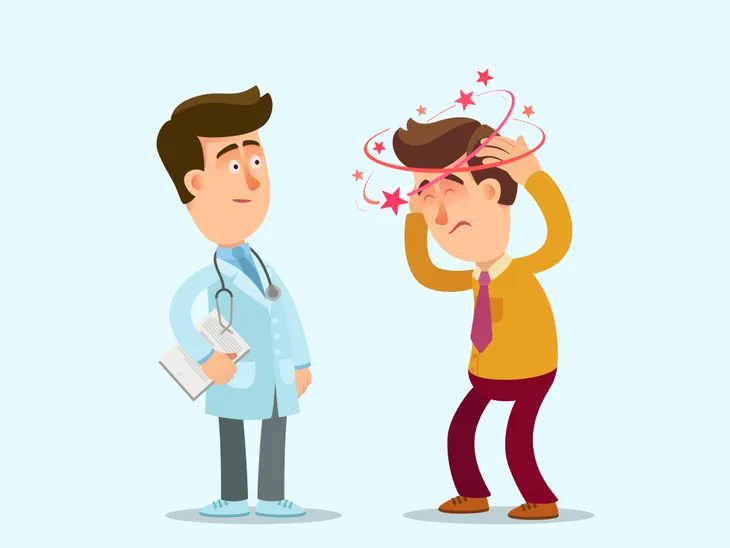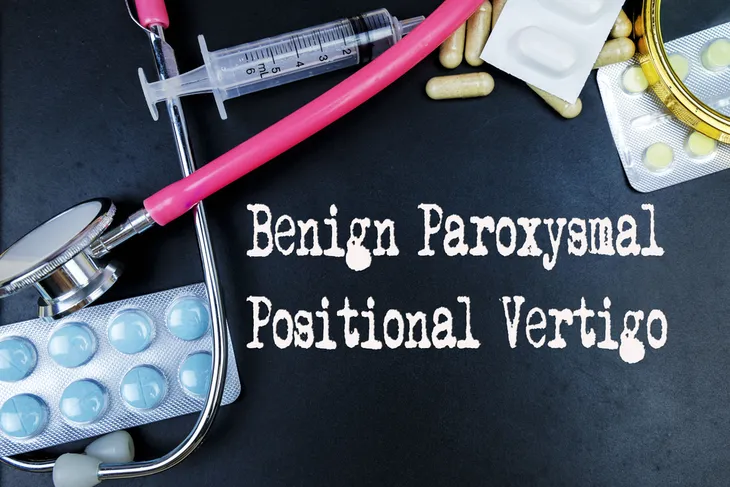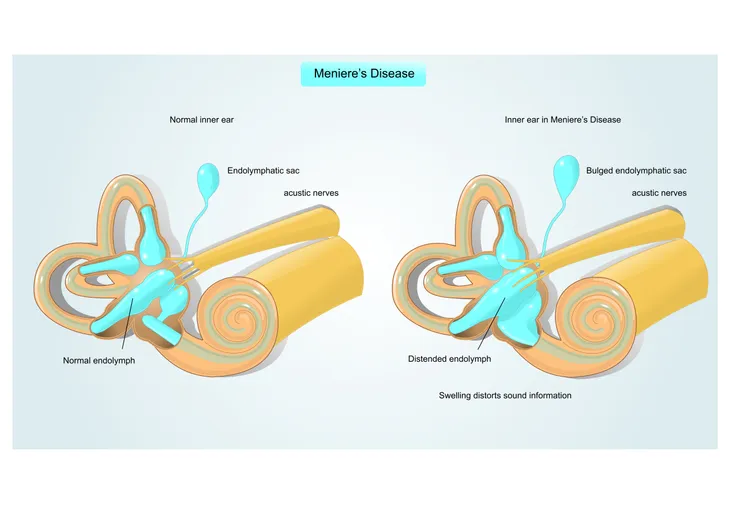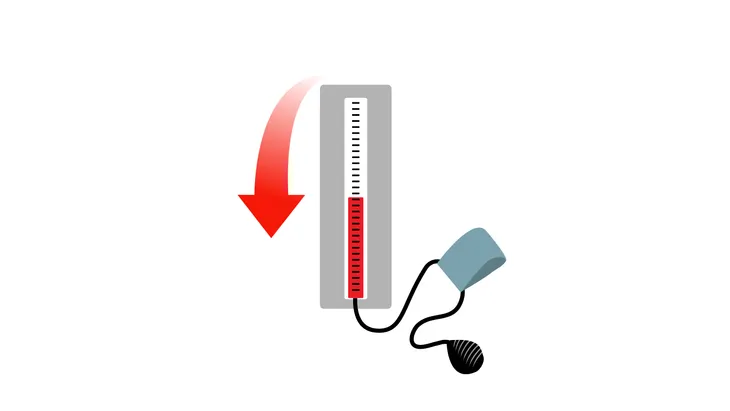- Dizziness is a term used to describe several sensations, including feeling faint, woozy, weak or unsteady.
- There’s a difference between being lightheaded and having vertigo is that lightheadedness feels like being on the brink of passing out and vertigo causes people to feel as though their surroundings are moving.
- It’s often the result of another problem (usually non-life threatening), such as dehydration, inner ear problems, or poor circulation.
- Treatment for dizziness will depend on the cause. Once that is resolved the dizziness will usually subside.
We’ve all experienced that unstable wobbly feeling that comes after standing up too fast or spinning around in circles. Dizziness can occur for a number of different reasons – not all of them are necessarily cause for concern, but it’s sometimes our body’s way of telling us that something is wrong. It’s usually a symptom or side effect of a larger problem.
A bit of dizziness on the rare occasion is nothing to be alarmed about, but if it’s happening often, for a prolonged period of time, or for no apparent reason — it’s time to call the doctor. There are a number of potential causes for dizziness and treatment will likely depend on that. To get a better understanding, here’s a look at the most common symptoms, causes, and treatment of dizziness…
What is Dizziness?
Dizziness is a term used to describe certain sensations, such as feeling faint, woozy, weak, or unsteady. It affects the sensory organs, specifically eyes and ears which can sometimes result in fainting, says Healthline. It’s not a medical condition or disease on its own, but rather a symptom of various disorders.
According to the Mayo Clinic, it’s one of the most common reasons adults visit their doctors. While it’s often a short lived experience, having frequent dizzy spells can have a major impact on your life. Fortunately, the source also notes that it’s rarely ever due to a life-threatening condition.
Symptoms of Dizziness
As we previously mentioned, dizziness results in certain sensations that affect both the eyes and ears. The most common symptoms of dizziness are “lightheadedness or feeling faint, a false sense of spinning, unsteadiness, loss of balance, feeling of floating or swimming,” explains Healthline.
It can also sometimes be accompanied by nausea, vomiting, or fainting. While it’s likely not due to a life-threatening condition, anyone who is experiencing prolonged or recurrent dizziness should seek medical attention.
Light-Headedness vs. Vertigo
People often use the term “dizzy” to describe two different things: light-headedness and vertigo. It’s important to know what it is you’re actually experiencing in order to get a proper diagnosis and effective treatment. So what is the difference between these two things? According to HealthLinkBC, light-headedness is the feeling of being on the brink of passing out or fainting. “Although you may feel dizzy, you do not feel as though you or your surroundings are moving,” writes the source. Light-headedness will often go away after lying down. It can get worse and result in fainting, or in extreme cases cause nausea.
Vertigo causes people to feel as though their surroundings are moving when they aren’t. It will affect their balance and cause a spinning, whirling, falling, or tilting sensation. People with severe vertigo will feel nauseated or even vomit. They might have trouble walking and standing which results in them losing their balance and falling.
 Pheelings media / Shutterstock
Pheelings media / ShutterstockCauses
Dehydration
Dehydration will often cause dizziness. A lot of people struggle to drink enough water throughout the day and replace fluids lost from sweating, peeing, or breathing. According to WebMD, it’s a common problem among seniors and people with diabetes. Severe dehydration will cause blood pressure levels to drop, which decreases blood flow to the brain causing dizziness. You might also be extremely thirsty, tired, and have dark urine. You can treat this problem by drinking lots of fluids. Avoid beverages like soda, tea, and coffee.
There is a heightened concern for dehydration in the summer months when the temperature rises. People who don’t drink enough fluids, particularly when active will often feel dizzy from overheating (hyperthermia) or dehydration, says the Mayo Clinic. The risk for dehydration is even higher among people who take heart medications.
Benign Paroxysmal Positional Vertigo (BPPV)
Benign paroxysmal positional vertigo (BPPV) is an inner ear disorder that occurs when crystals in the inner ear move out of place, says the Cleveland Clinic. The most common indicator of BPPV is a sudden onset of vertigo when changing positions of the head or body (i.e. bending over). This dizzy feeling lasts a few seconds or minutes. The source assures it is a harmless condition that usually disappears on its own within 6 weeks.
BPPV is often the result of a head injury or sometimes just from getting older. Luckily it’s easy to treat. The Cleveland Clinic advises seeing a doctor who can walk you through a series of moves called canalith repositioning procedure (CRP). These movements will help get those inner ear crystals back into place.
Meniere’s Syndrome
Meniere’s syndrome results from too much fluid in the inner ear. It’s unclear why this happens since anyone can develop Meniere’s, but it’s more common among people aged 40 to 60. According to the Cleveland Clinic, people who suffer from Meniere’s will also experience hearing loss, muffled or distorted hearing, nausea and vomiting, and/or tinnitus (ringing in the ear).
The source also notes that Meniere’s syndrome tends to come on suddenly and can last anywhere from 20-minutes to a 24-hour period. “Treatment methods include anti-nausea and anti-vertigo medications,” as well as lifestyle changes such as a low-salt diet, limiting alcohol use, changing medications, and quitting smoking. If any of these simple measures don’t help, you might need more aggressive treatments which include injecting medication directly into the ear and/or surgery.
Ear Infection
Dizziness affects our sensory nerves, so it might not be surprising that the problem sometimes starts here. WebMD explains that inflammation of the nerves in your ears can cause vertigo and is a result of either vestibular neuritis or labyrinthitis. Vestibular neuritis is inflammation of the vestibular nerve, whereas labyrinthitis affects both the vestibular nerve and the cochlear nerve. Both conditions are caused by an infection, likely from a virus, “but bacteria from a middle ear infection or meningitis can make their way into your inner ear as well,” writes the source.
If an ear infection is the root problem, dizziness will come on suddenly and is typically accompanied by ringing in the ears. You might find it hard to hear, have a fever, ear pain, and even feel nauseated. If the infection is from a virus, it can’t be treated with antibiotics. You’ll be prescribed some medication to help you feel better as the infection runs its course.
Circulation Problems
Circulation problems can also cause dizziness. Your brain needs a steady supply of oxygen-rich blood. If there’s a problem with blood flow, you’ll likely become lightheaded and faint. “Some causes of low blood flow to the brain include blood clots, clogged arteries, heart failure, and an irregular heartbeat,” writes WebMD. Standing suddenly can sometimes cause a sharp drop in blood pressure called orthostatic hypotension.
People with diabetes have to be mindful of their blood sugar and frequently check the amount of glucose in their blood, says WebMD. If it drops too low they will get dizzy. It can also cause hunger, shakiness, sweating, and confusion. While low blood sugar can also affect people without diabetes, the source notes this is rare. You can boost blood sugar levels by eating or drinking something with sugar (i.e. juice or candy).
Migraines
Migraines are a more severe version of a headache that is accompanied by a throbbing pain or pulsing sensation (usually on one side of the head). People who suffer from migraines might also experience nausea, vomiting, and episodes of vertigo or lightheadedness. According to the Mayo Clinic, it can even happen when they aren’t experiencing a severe headache. These vertigo episodes can last minutes or even hours and are often associated with noise and light sensitivity.
Sometimes people will get a warning “aura” symptom before a migraine is about to come on. “An aura can include visual disturbances, such as flashes of light or blind spots, or other disturbances, such as tingling on one side of the face or in an arm or leg and difficulty speaking,” writes the Mayo Clinic. Migraines can sometimes be prevented with medications, or at the very least subdue the symptoms. There are also some remedies and lifestyle changes that may help.
Additional Causes and Risk Factors
There are many different conditions or disorders that can cause dizziness. In addition to the ones we’ve already listed, there’s also anxiety and stress which often stems from hyperventilating or breathing too quickly. Carbon monoxide poisoning, vision problems, neurological conditions, head injury, alcohol use, low iron levels, and overheating.
WedMD also lists several medications that have been known to cause dizziness as a side effect. The list includes: antibiotics, antidepressants, anti-seizure medication, blood pressure medicine, and sedatives.
When it comes to risk factors, the Mayo Clinic points out two major ones which are age and prior history. Older adults are more likely to experience dizziness due to the fact that they are also more likely to have medical conditions that cause dizziness or balance issues. They are also more likely to be taking medications that list dizziness as a side effect. People who’ve previously experienced episodes of dizziness have a higher chance of experiencing future episodes.
When to Call a Doctor
While dizziness is rarely ever due to a life threatening problem, there are still times when it’s necessary to call a doctor or seek medical attention immediately. For example, any recurring or extended periods of dizziness should be addressed by a medical professional.
Healthline also warns to consult a doctor if dizziness comes along with a head injury, headache, neck ache, high fever, blurred vision, difficulty speaking, hearing loss, drooping of eye or mouth, numbness or tingling, chest pain, loss of consciousness, or ongoing vomiting. These could be symptoms of a serious health problem.
 Tunatura / Shutterstock
Tunatura / ShutterstockTreatment Options
As previously mentioned, the treatment for dizziness will likely depend on what the cause is. Dizziness is often a symptom and so treating the cause will often resolve the dizziness. Medication can be used, but oftentimes is not needed, says Medical News Today. If they are, the most commonly used are anti-anxiety medications, anticholinergic drugs or antihistamines, as well as medications for migraines.
Sometimes all it requires are some lifestyle changes in order to cure the dizziness. These changes could be as simple as drinking more water or lying down when feeling light-headed. Medical News Today also suggests trying acupuncture, stress relieving techniques, and getting plenty of sleep. There are some therapeutic approaches that may help such as head position maneuvers, balance therapy, or psychotherapy.













